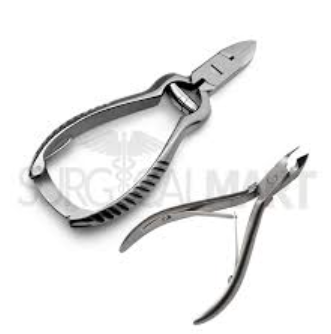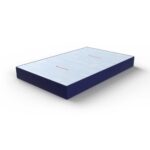Introduction
Nippers are small but essential tools used in various industries and hobbies for cutting purposes. Whether you’re a DIY enthusiast, a jeweler, or someone working in electronics, nippers are indispensable for precision tasks. In this article, we will take a deep dive into what nippers are, their types, and how to choose the right one for your needs.
What Are Nippers?
Nippers are handheld tools designed for cutting small materials such as wires, cables, plastic, or metal. They typically feature two sharp blades that close together when the handles are squeezed. Nippers come in various sizes and designs, catering to specific applications, and are known for their precision and efficiency.
Types of Nippers
There are several types of nippers designed for different uses. Here’s a breakdown of the most common ones:
1. Diagonal Nippers
Diagonal nippers are designed for cutting wires and small materials at an angle. They are popular in the electronics and jewelry industries due to their ability to cut close to surfaces.
2. End Nippers
End nippers have blades positioned at the very tip of the tool. They are perfect for cutting flush to a surface, such as trimming nails or removing staples.
3. Jewelry Nippers
Jewelry nippers are specialized tools designed for delicate cutting tasks required in jewelry making. They offer high precision without damaging the surrounding material.
4. Cable Nippers
Cable nippers are heavy-duty nippers used to cut thicker wires and cables. They feature reinforced blades that can withstand high pressure without bending or breaking.
How to Choose the Right Nippers
When selecting the right nippers for your tasks, consider the following factors:
1. Material
The material you need to cut plays a significant role in choosing the right nippers. For tougher materials like steel cables, opt for heavy-duty cable nippers, while softer materials like plastic or copper can be handled with smaller, precision nippers.
2. Size and Design
Consider the size of the nippers based on the application. Smaller nippers provide more control for delicate tasks, whereas larger ones are better suited for heavy-duty jobs.
3. Handle Comfort
Comfortable handles are essential for prolonged use. Look for nippers with ergonomic grips to avoid hand fatigue, especially if you’re using them frequently.
Maintenance and Care
To keep your nippers in top condition, regular maintenance is crucial. Follow these steps to ensure longevity:
- Clean After Use: After each use, wipe your nippers with a clean, dry cloth to remove any debris.
- Oil the Blades: Apply a light coat of oil to the blades to prevent rusting.
- Sharpen Regularly: If the blades become dull, use a sharpening tool to maintain their cutting ability.
Comparison of Nipper Types
| Nipper Type | Best For | Features |
|---|---|---|
| Diagonal Nippers | Cutting wires at an angle | Small, angled cutting edge |
| End Nippers | Flush cutting | Blades at the tip |
| Jewelry Nippers | Precision in jewelry work | Lightweight, fine blades |
| Cable Nippers | Cutting thick cables | Heavy-duty, strong blades |
Benefits of Using Nippers
Nippers offer numerous benefits over other cutting tools, making them indispensable in certain fields:
- Precision Cutting: Nippers provide sharp, clean cuts, making them ideal for delicate tasks.
- Versatility: With different types of nippers available, they are useful in various industries, from electronics to jewelry making.
- Ease of Use: Nippers are easy to handle and require minimal effort to operate.
Conclusion
Nippers are small but powerful tools that can handle a wide range of cutting tasks. Whether you need them for DIY projects, professional work, or hobbies, choosing the right type of nipper is crucial. By understanding the different types, maintenance tips, and benefits, you can ensure that your nippers will last for years to come.
FAQs
1. What are the main uses of nippers?
Nippers are primarily used for cutting small materials such as wires, nails, plastic, and cables.
2. Can I sharpen nippers at home?
Yes, you can use a sharpening tool designed for small blades to keep your nippers sharp.
3. Are all nippers suitable for cutting metal?
No, only heavy-duty nippers like cable nippers are designed for cutting thick metals. Lighter nippers should be used for softer materials.
4. How often should I oil my nippers?
It’s recommended to oil the blades after every use to prevent rusting and maintain cutting efficiency.




